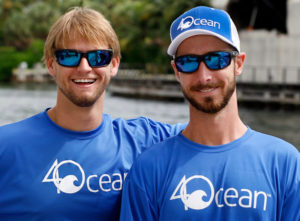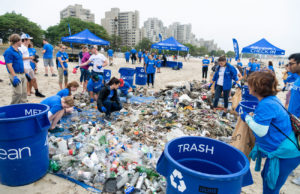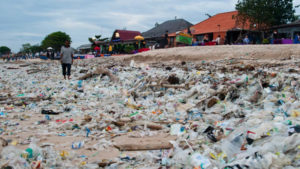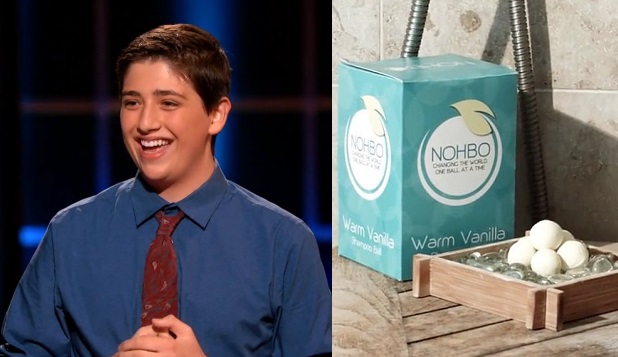
(L to R) Alex Schulze and Andrew Cooper owners of 4Ocean, a company that actively removes trash from the ocean. Photo by Tim Stepien.
I’m sure we’ve all seen ads from time to time about 4Ocean – the company that sells bracelets and puts money towards cleaning up our oceans. In the last few months, I’ve seen an increase in these ads before Youtube videos and I’ve wondered who it is that’s behind this endeavor.
As it turns out, there are two people: Andrew Cooper and Alex Schulze. Recently, these two made it to the 2019 edition of the Forbes 30 Under 30 for their efforts. So how did it all start?
In 2015, Cooper and Schulze went on a surfing trip to Bali and were appalled by the amount of plastic they found in the ocean. As we are learning in class, they found trouble and sought to fix it. By 2017, they were selling the bracelets we all know of today as a way to fund the cleanup effort. According to the organization, the bracelets are made of recycled materials and each represents a pound of trash that will be removed. 4Ocean has since created more products to help fund the effort, but the bracelets remain the most widely known. According to an article in PR Newswire, “By creating jobs, utilizing the latest technology and raising awareness about the impact of trash in the ocean, the company is building the first economy for ocean plastic and creating a cleaner, more sustainable future for the ocean.”
Cooper and Schulze are excellent examples of entrepreneurs who used their passion to change how the world sees a problem. They are both surfers, fishermen, and divers. They spend much of their time around the water and were perfectly suited to see and frame the problem of plastic in the ocean in a way that many people around the world have not known. They did not just say that there was a problem, but they showed pictures and gave people a simple way that they could help – all with the easy purchase of a recycled bracelet. Every time a customer would look at the bracelet, they would be reminded of the ongoing problem and the fight to clean the world’s oceans. By presenting the problem in a way that gave people something easy to do and inspiring them with the need, they made the daunting task of cleaning up the oceans seem very possible and even exciting.
Sources:
https://4ocean.com/about/
https://www.prnewswire.com/news-releases/4ocean-co-founders-andrew-cooper-and-alex-schulze-named-forbes-30-under-30-social-entrepreneurs-300750165.html
https://www.cnbc.com/2018/09/07/4oceans-cleaned-up-1-million-pounds-of-ocean-garbage.html











